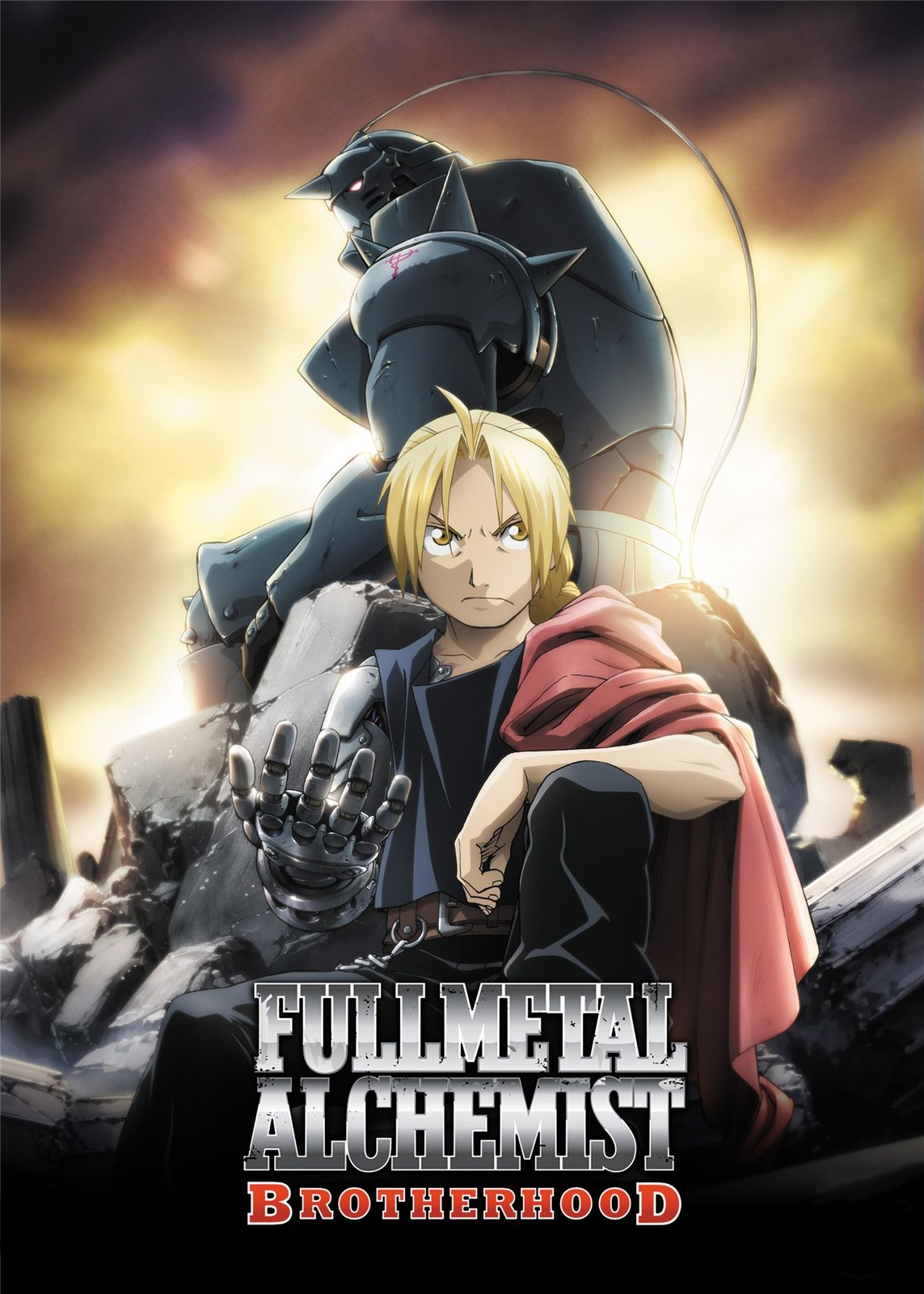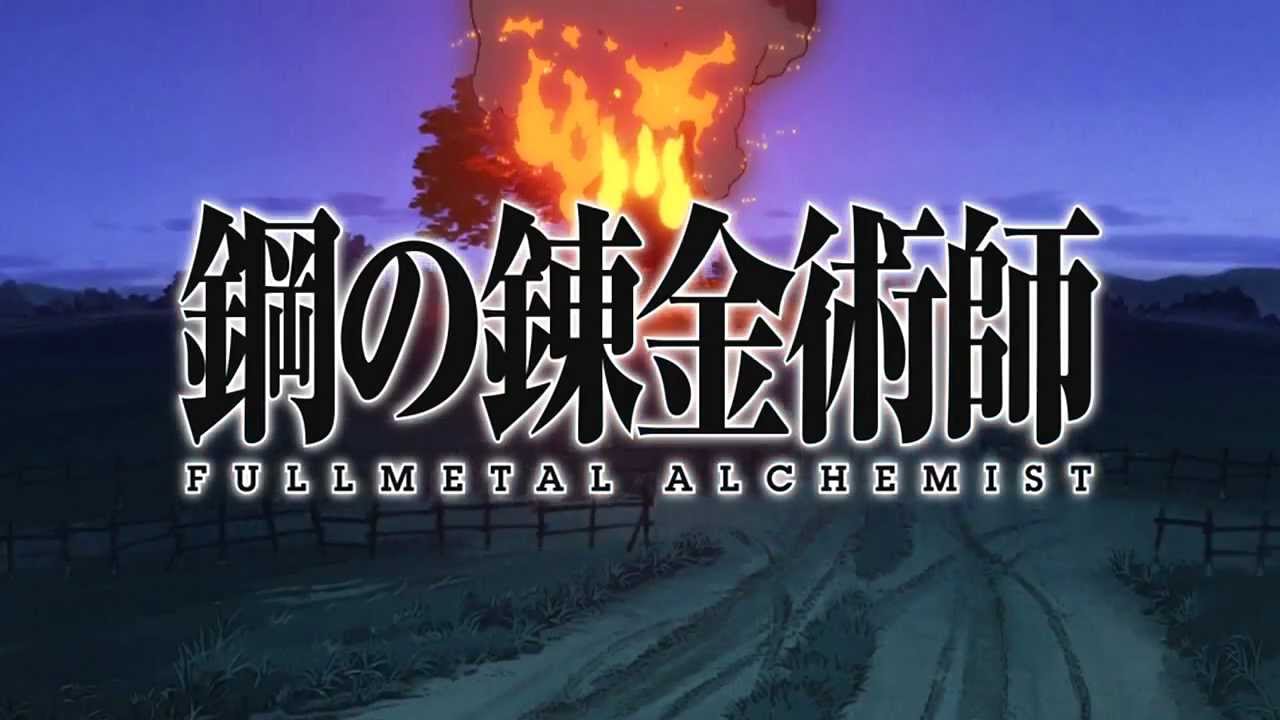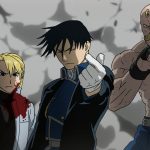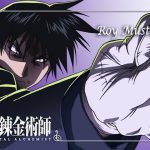Fullmetal Alchemist: Brotherhood is the second anime series of the hit manga, Fullmetal Alchemist written by mangaka Hiromu Arakawa. The first iteration titled, Fullmetal Alchemist, produced a storyline that deviated from the main story line presented in the manga due to its being an earlier adaptation during the earlier days of the manga. While the first production was received very well, Brotherhood did not pale in comparison being extremely well received as well. The series is much more faithful to the source material faithfully depicting the manga’s story.

The series does a magnificent job of world building establishing the rules and parameters of the power of alchemy early on. Equivalent exchange is a recurring concept that is used throughout the series. It is the driving force of the world and the driving force of alchemy. That single rule however is shown to be unclear when the protagonist, Edward Elric, attempts human transmutation with the help of his brother Alphonse, to bring their mother back to life. Despite, having used a complete set of constituents of the human body, the transmutation still failed. This brings about the first major question of the show – what makes a human being, human? It further looks into the value of the human soul and life.
The series also puts a large emphasis on faith. The whole journey of the Elric brothers is rooted in faith and the belief that there exists a power that can overcome the scientific principles of their world and the laws that govern alchemy’s equivalent exchange. The two continuously search for the Philosopher’s Stone, a stone that is said to allows the user to perform alchemy unbound by equivalent exchange. It is ironic that Edward Elric, a prodigy of alchemy which is considered an absolute science, roots his entire life’s purpose on the chance that something that shouldn’t exist in this world, does in fact exist.
One of the reasons that Fullmetal Alchemist continues to impress is because of the way it structures these kinds of questions and concepts. The ideas of faith and of life aren’t simply put forward for the viewer to answer on their own. Rather, the anime takes the viewer on an adventure with the Elric brothers allowing them to search for the answer to these admittedly deep questions, alongside the two.
Beyond the themes, the show seems to suffer slightly from it’s large set of characters. One flaw of the series is that it tends to develop a handful of characters that propel the story forward but continue to introduce other characters that see little development. Roy Mustang for example is given a lot a context and character growth. Despite not being the series protagonist, he develops very well over the course of 50 episodes. Mustang, the Flame Alchemist is introduced as a war hero with the title of Hero of Ishval having playing a major role in the war that occurred before the series began. His sense of justice and his doubts in the absolutes of military command stem from the role that he fulfilled prior to the anime and carry over to events that occur throughout the series. His relationships with military personalities is also heavily developed. As Edward’s direct superior, their relationship is shown to be less than professional with Edward going out of his way to oppose the commands of his superior making for rather colorful interaction between the two. As a contrast to him is Riza Hawkeye, a character who is shown to be Mustang’s right hand. Considering her closeness to Mustang and her screen presence, she sees noticeably less growth when compared to the Flame Alchemist. It can be argued that the most significant development that we see from Hawkeye is the deepening of her relationship with Mustang which in itself can be attributed to the need to develop the latter rather than the former. It should be noted however that most of the major proponents of the show do grow a considerable amount especially in terms of their understanding of the world and how it works. Thus, while the large cast was a weak point, the development of key characters was not.
Fullmetal Alchemist: Brotherhood features an impressive set of opening theme songs that are coupled with equally amazing animation. The songs capture not just the general mood of the series but go a step further, reflecting the current state of characters. Again by YUI for example manages to portray the past of the Elric brothers and their desire to make up for their mistakes.

While not without its flaws, Fullmetal Alchemist: Brotherhood has proven to be a memorable series that does not suffer from the fact that it is the second adaptation of the source material. It solidifies itself as a favorite of avid anime fans.


